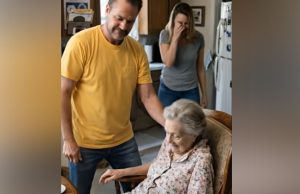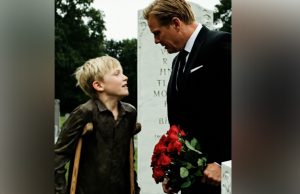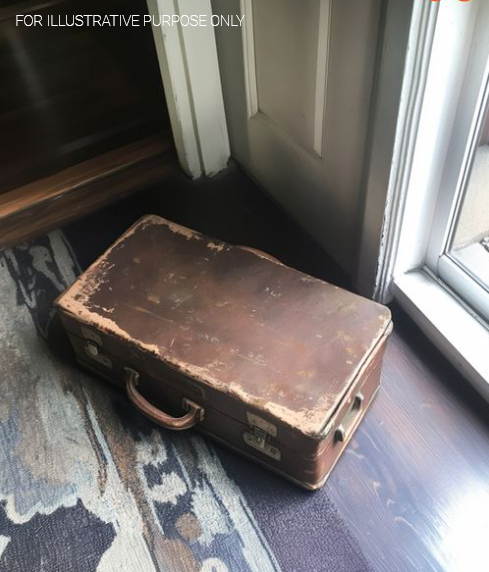
One Thursday afternoon, I was sprawled on my worn leather couch, mindlessly scrolling through my phone when a frantic pounding on my front door jolted me upright.
As I swung it open, I found myself face-to-face with Margaret, my elderly neighbor from next door. Her silver hair was in disarray, her eyes wide with an urgency I’d never seen before.
“Kimberly,” she gasped, thrusting a battered suitcase into my arms. “I need you to keep this safe until I return. Don’t open it. Please, just promise me you’ll keep it hidden.”
“Margaret, what’s going on? Are you okay?”
She shook her head, her gaze darting over her shoulder as if expecting to see someone following her.
“No time to explain, dear. Just promise me you’ll keep it safe. It’s for someone I truly adore.”
She scurried back to her house like a frightened rabbit. I stood there, dumbfounded, clutching the mysterious suitcase to my chest.
“Margaret, wait!” I called after her, but she had already disappeared into her house.
The suitcase was old, probably from the ’70s, and it was covered in scratches and dents. What on earth had I just been dragged into? What was in this suitcase?
That night I couldn’t sleep. I tossed and turned, Margaret’s panicked face haunting my thoughts.
As dawn broke, I decided to check on Margaret and find out about the mysterious suitcase. But as I stepped outside, my heart plummeted.
Police cars surrounded her house, their lights painting the quiet street in surreal flashes of red and blue.
I rushed over, my chest tight with dread.
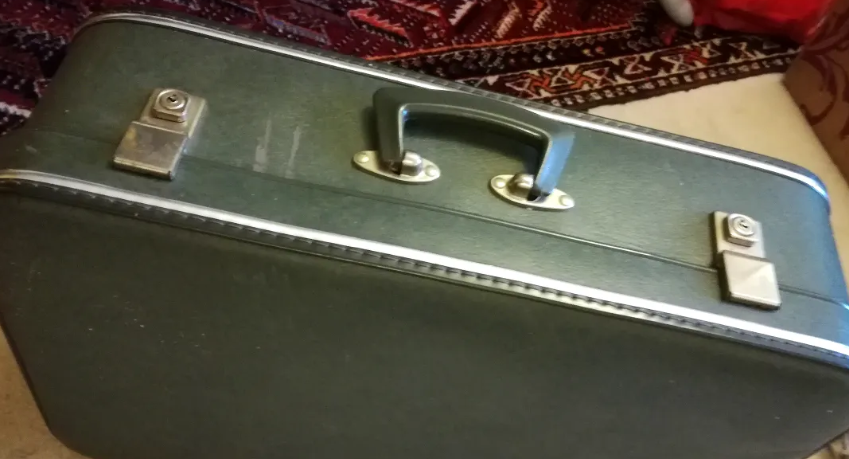
“Ma’am, I’m going to need you to step back,” an officer stopped me, holding up a hand.
“What happened, Officer? Is Margaret okay?”
His expression softened, and he let out a heavy sigh. “I’m sorry. She passed away in her sleep last night. Her maid called us this morning.”
The world seemed to cave in around me. “But that’s impossible. I just saw her yesterday!”
The officer’s brow furrowed. “You saw her? When exactly?”
I reolied “Just in passing. Nothing unusual.”
He nodded, seemingly satisfied. As he turned away, I retreated to my house, my mind reeling.
Margaret was gone, just like that.
For days, I avoided the suitcase like it was radioactive. Every time I passed it, its ominous presence pulled at the edges of my mind.
What secrets lay hidden behind that tarnished brass latch?
The image of Margaret’s terror-stricken face flashed before my eyes. It didn’t make sense. We were neighbors, sure, but hardly close.
Why me? Why not her daughter or a close friend?
I found myself jumping at every unexpected sound, half-expecting shadowy figures to come knocking, demanding the suitcase.
The whole affair reeked of mystery, like I’d stumbled into the pages of a thriller novel. Whatever was happening, it was clear I was now entangled in something far beyond my quiet, suburban life.
As days passed, the urge to peek inside the suitcase grew stronger. But every time my hand reached for the latch, Margaret’s urgent plea echoed in my ears: “Don’t open it.”
But curiosity gnawed at me, relentless as a hungry dog. Finally, a week after Margaret’s death, I couldn’t take it anymore.
With trembling hands, I unlatched the case and sat back, frozen.
Inside, I found stacks of cash. It was more money than I’d ever seen in my life. And nestled among the bills was a letter addressed to… me?

With trembling hands, I unfolded the paper and began to read:
“Dear Kimberly,
If you’re reading this, I’m already gone, never to return again. I’m sorry for the mystery, but I hope you’ll understand why. You’re the person I truly adore, and I didn’t want you to find out what was in this suitcase until I’m gone.
I’ve been battling cancer, keeping it to myself. Recently, I overheard my daughter Regina planning to put me in a nursing home and take my savings. The pain of that was worse than any cancer.
I couldn’t let that happen. I want my money to mean something. That’s when I remembered you.”
“Remember when your little girl brought me that homemade pie?” the letter continued. “She told me about your dream to open a bakery that would hire older folks and people with Down Syndrome. That dream touched my heart, Kimberly. It’s exactly what this world needs more of.
So, I’m entrusting my life savings to you. Use it to make your dream a reality. Give people a chance to work, to belong, to matter. It’s what I want my legacy to be.
I know this is a lot, and I’m sorry for burdening you. But I’ve watched you over the years. You’re kind, decent, and hardworking. You’re the daughter I wish I’d had.
With love and gratitude,
Margaret”
This kind older lady’s words blurred through my tears.
And for the first time since her passing, I allowed myself to really grieve for Margaret.
This woman, who I’d exchanged nothing more than friendly waves with for years, had seen something in me that she believed in. Something worth risking everything for.
But could I accept it? Was it right to use someone’s money to fuel my dreams?
But could I accept it? Was it right to use someone’s money to fuel my dreams?
Was it right to benefit from this family tragedy? What if Regina contested the money? The thought of neighbors whispering and judging made me queasy.
I re-read Margaret’s letter. Her words were clear: she wanted her hard-earned money to create something positive and give opportunities to those often overlooked. She’d chosen me to fulfill that wish.
After a week of endless internal debates and sleepless nights, I made my decision. I would honor Margaret’s last wish.
Months passed in a whirlwind of activity. The bakery, which I named “Margaret’s Sweet Memories,” became a reality. I hired retirees and people with Down Syndrome, just as I’d always dreamed.
Every day felt like a tribute to Margaret’s kindness.
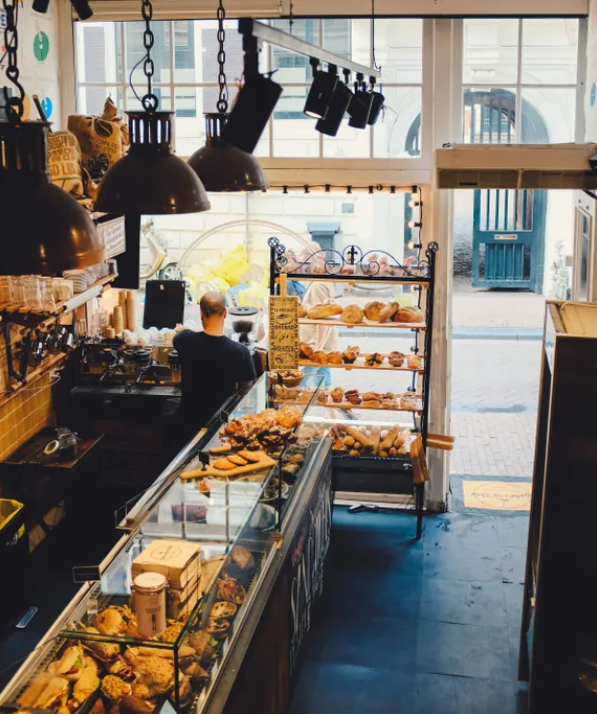
Billy, a young man with Down Syndrome, blossomed into our most enthusiastic greeter, his smile warming even the grumpiest of customers. Mrs. Johnson, a retired teacher with arthritis, found joy in teaching our younger staff members the art of cake decorating.
Then, one sunny afternoon, a shadow fell across the counter. I looked up to find a woman in her early forties, with Margaret’s eyes and a hard set to her jaw.
“You must be Kimberly. I’m Regina. Margaret’s daughter.”
My heart raced. “How can I help you?”
“I know about the money. My mother’s diary was quite illuminating.”
“Whatever you think you know—”
“Save it, Kimberly. I’m not here for explanations. I want what’s rightfully mine.”
“Regina, your mother made her wishes clear. This bakery, these people… it’s what she wanted her money to do.”
“And what about what I wanted? She was my mother!”
“Was she? Because from what I understood, you were planning to dump her in a home and take her money anyway.”
Regina recoiled as if I’d slapped her.
Finally, her shoulders sagged. “You don’t understand. I was desperate. My husband left and I lost my job. I had no choice.”
I softened, recognizing the pain in her eyes. “There’s always a choice, Regina. Your mother knew that. That’s why she made hers.”
She looked around the bakery, at the smiling faces of the staff and the warm atmosphere. “She really wanted this, didn’t she?”
“More than anything. She wanted to make a difference.”
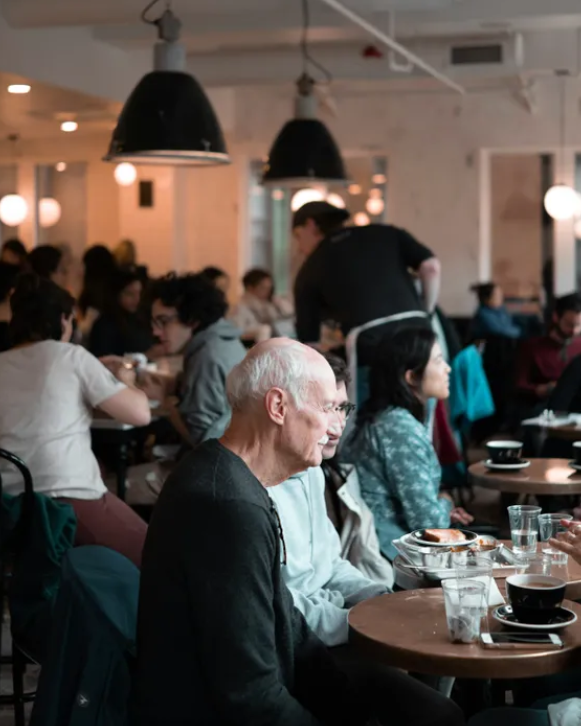
Regina’s eyes welled up. “God, I messed up. I messed up so bad.”
I reached out and squeezed her hand. “It’s not too late to make it right. Want to hear about your mom? The Margaret I got to know in her final days?”
She nodded, a tear sliding down her cheek. “I’d like that.”
We sat down with cups of coffee, and I told her about Margaret’s bravery, her kindness, and her dream of making a difference. As Regina listened, I saw the hardness in her eyes slowly melt away, replaced by grief and regret.
Weeks turned into months and “Margaret’s Sweet Memories” flourished. Regina became a regular, slowly rebuilding her life and her connection to her mother’s memory.
One year after Margaret’s passing, I stood in the bakery, watching my diverse staff work together seamlessly. Mrs. Johnson was patiently guiding Billy through the art of cake decorating, both of them laughing at a lopsided flower.
Regina appeared at my elbow, a wistful smile on her face. “You know, I think I finally understand why Mom did what she did.”
I turned to her, curious. “Oh?”
She gestured around the bakery. “This place… it’s not just about the money or even the jobs. It’s about dignity and purpose. Mom always said everyone deserves a chance to shine.”
“Your mom was a wise woman.”
Regina’s eyes shimmered. “Yeah, she was. I just wish I’d realized it sooner.”
As we stood there, watching the bustling bakery, I felt Margaret’s presence all around us. In the laughter of the staff, in the smell of freshly baked bread, and the warmth of the community she’d helped create.
And somewhere, I knew that Margaret was smiling down on us all, her mission accomplished, and her legacy secure in the hearts of those she’d left behind.


